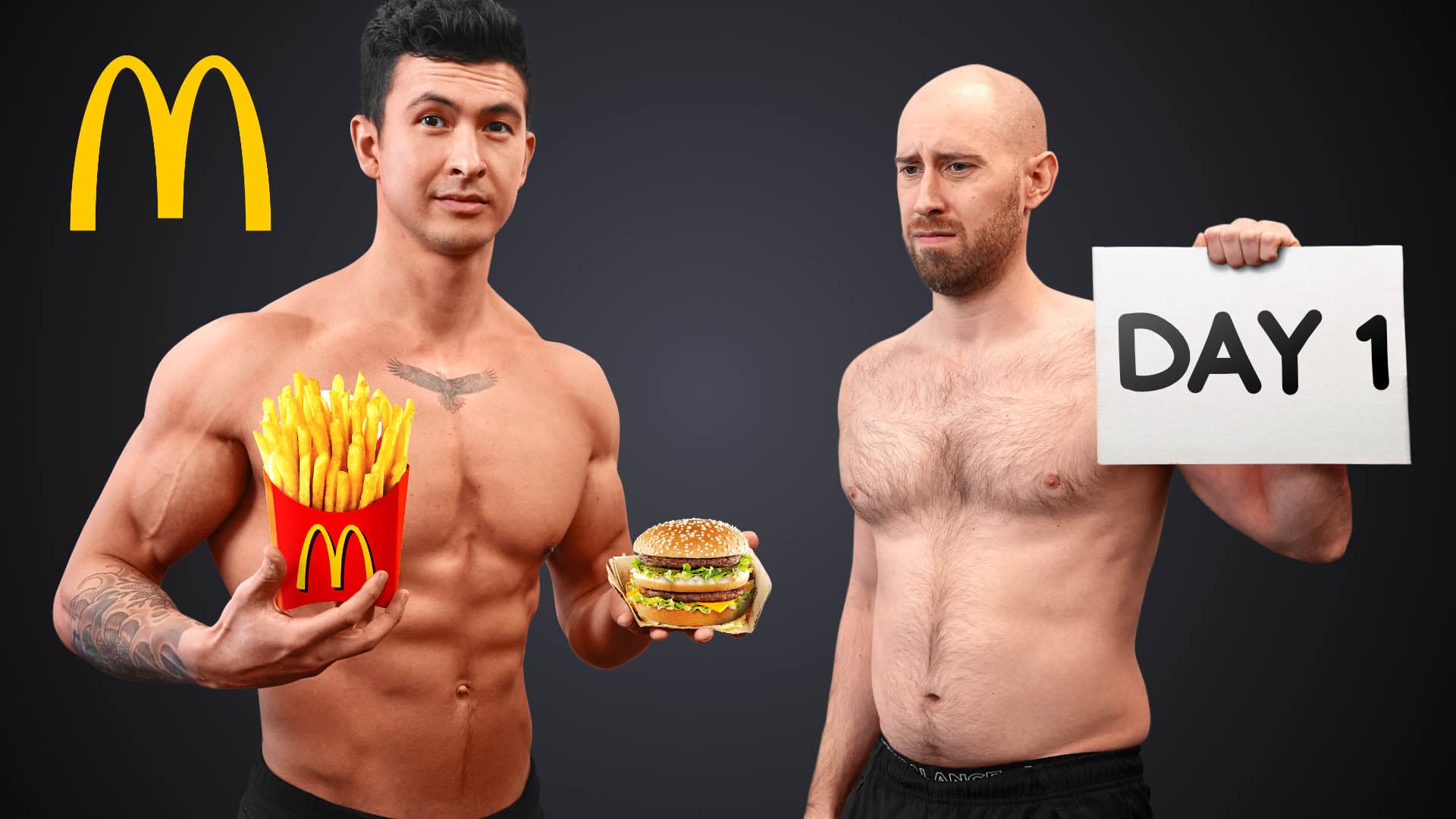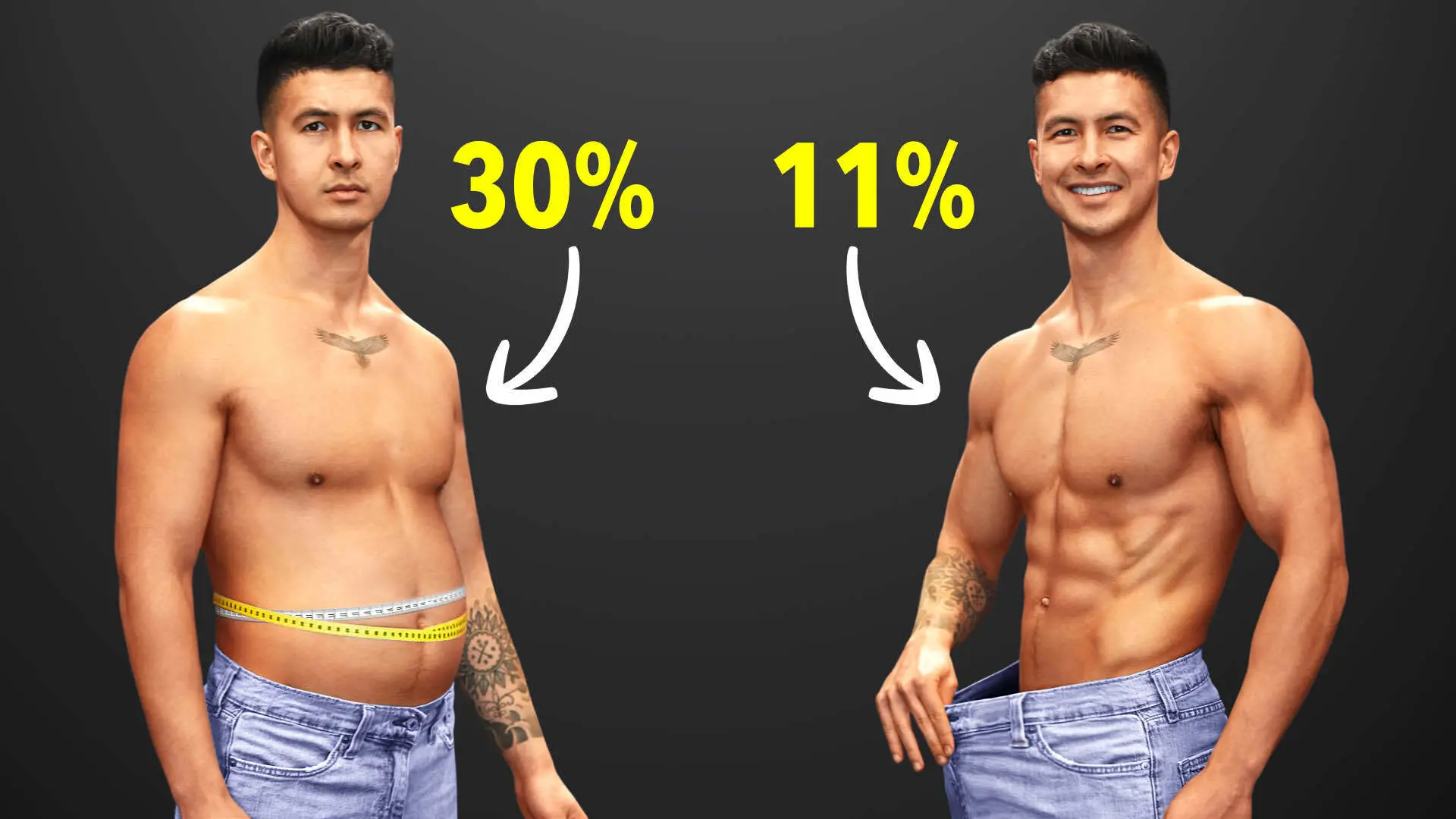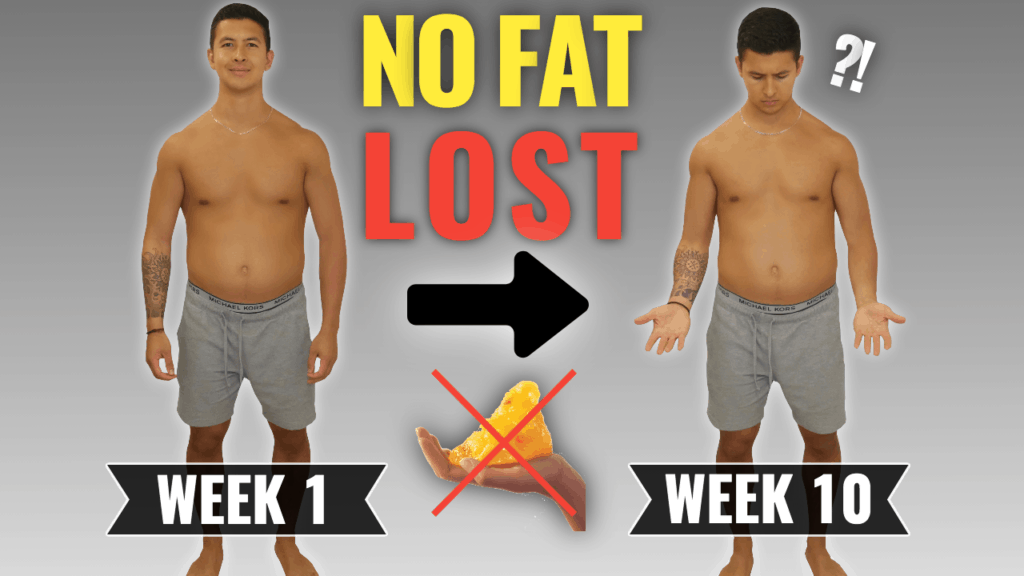
Why You're Not Losing Fat: 4 Hidden Mistakes You're Unknowingly Making
Are you not losing fat and you're not sure why? In this article, you'll learn about four hidden mistakes that are preventing you from losing fat.
Most people quit their fat loss journey because they're not seeing results. It can be frustrating to feel like you're doing everything right, and still make little to no progress.
I don't blame you. If I didn't know any better, I would quit too if I didn't see results.
But rather than giving up altogether, it’s essential that you take a step back to pinpoint precisely what it is you’re doing that’s preventing you from losing fat. And if you're someone who needs a planned-out program to stay motivated, then the BWS programs could just be what you need to (finally) achieve your fitness goals. Each one of them is designed to help you lose fat - and build muscle - as efficiently as possible. If you're interested:
Click the button below to take my analysis quiz to discover the best program for you:
↓
What Drives Fat Loss?
Fat loss has and always will be about the same thing - sustaining a consistent calorie deficit (study).
The only way to lose fat is to create an imbalance of energy intake (from the food you eat), and energy expenditure (from activity such exercise).
You may have been told about special foods you can eat to lose fat. You may have been told that eating smaller frequent meals fuels your metabolism.
None of this matters, as your fat loss will be determined by putting less energy into your body than what your body puts out (study).
Research has made it very clear that despite what diet you follow, any diet which helps you adhere to a calorie deficit will work in the long-term for weight loss.
The only exception of "special" food is protein. Protein decreases the "hunger hormone" ghrelin and also increases the satiety hormone peptide YY (PYY), which decreases appetite (study, study).
However, these differences still drive fat loss in the same way — calories in, calories out.
Not Losing Fat? Here Are The Mistakes You're Probably Making
If you're currently not losing fat, then you can rest assured that it's not because:
- You're genetically cursed
- Your metabolism is damaged
- You're too old to lose fat
Your genetics, metabolism and age matter, but they aren't the primary reason why you're not losing fat.
There are several mistakes I see people regularly make that actually are preventing them from making progress.
In this article, I’ll be walking you through four mistakes. I'll be explaining how you can correct these mistakes if you're making them so that you can start burning fat and see results as soon as possible.
Mistake #1: Underestimating Calorie Intake
The first and most common mistake you’re probably making is underestimating your calorie intake.
It's common to think that you're eating in a calorie deficit, but in reality, you're not. This prevents fat loss from occurring.
This is the mistake 99.9% of people are making when they claim they don't eat a lot of calories but struggle to lose weight.
Illustrating this is a paper published in the British Journal of Nutrition, which looked at a group of women struggling to lose weight.
These women claimed not to eat much. Their self-reported calorie intake was only 1,340 calories per day on average.
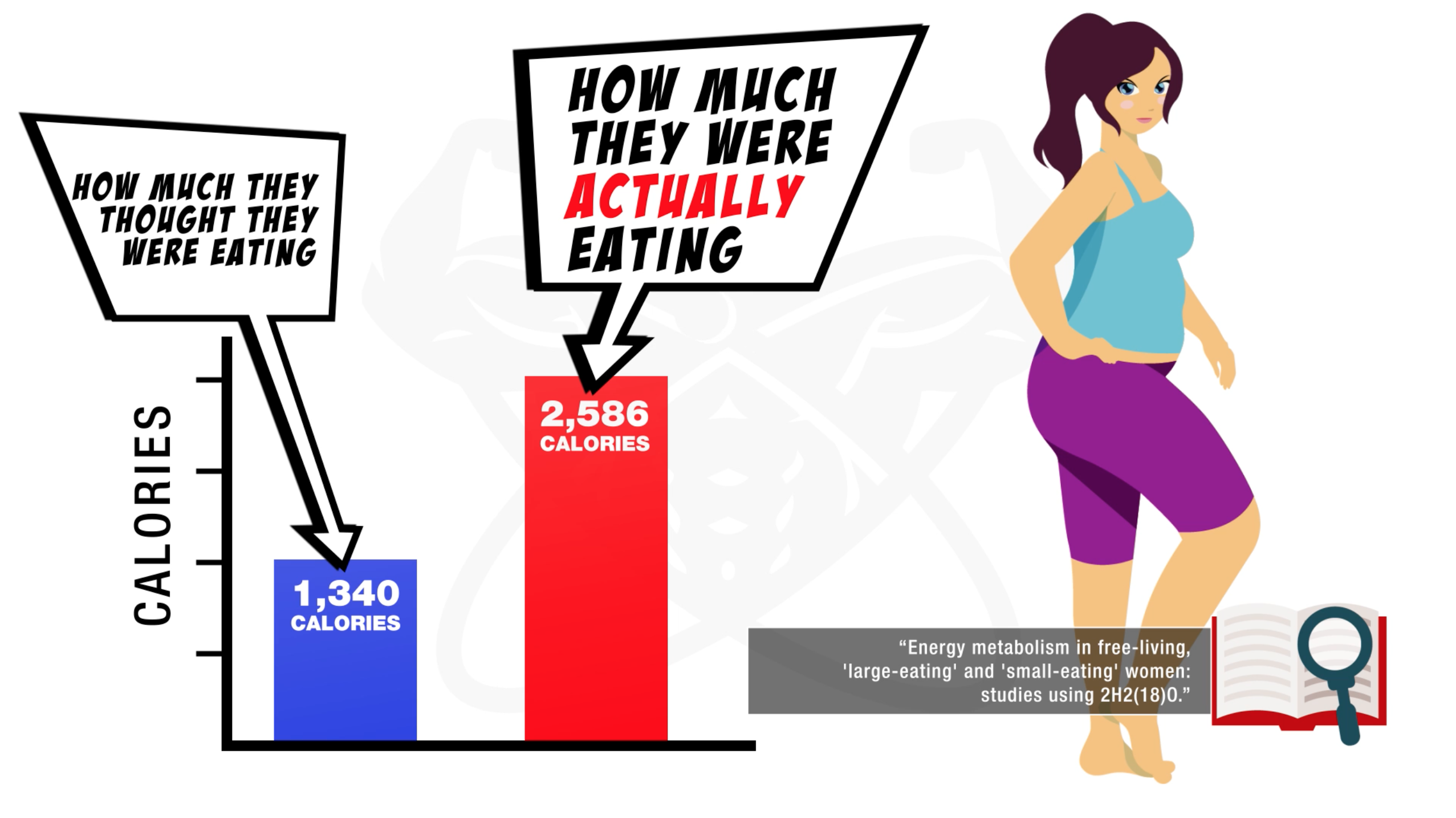
However, after the researchers determined their exact daily calorie intake, they found it to be over 2,500 calories (2,586) on average per day. This is nearly double the calories they self-reported. Clearly, the reason they weren't successfully losing weight was that they were eating too much.
It wasn’t until these women were given the actual amount of calories that they claimed to be eating (1,340 calories) that they began losing weight at roughly 1.65 pounds per week.
Multiple studies have confirmed the phenomenon of a skewed perception of caloric intake (study, study).
One paper showed that even experienced dietitians underreported their genuine calorie intake!
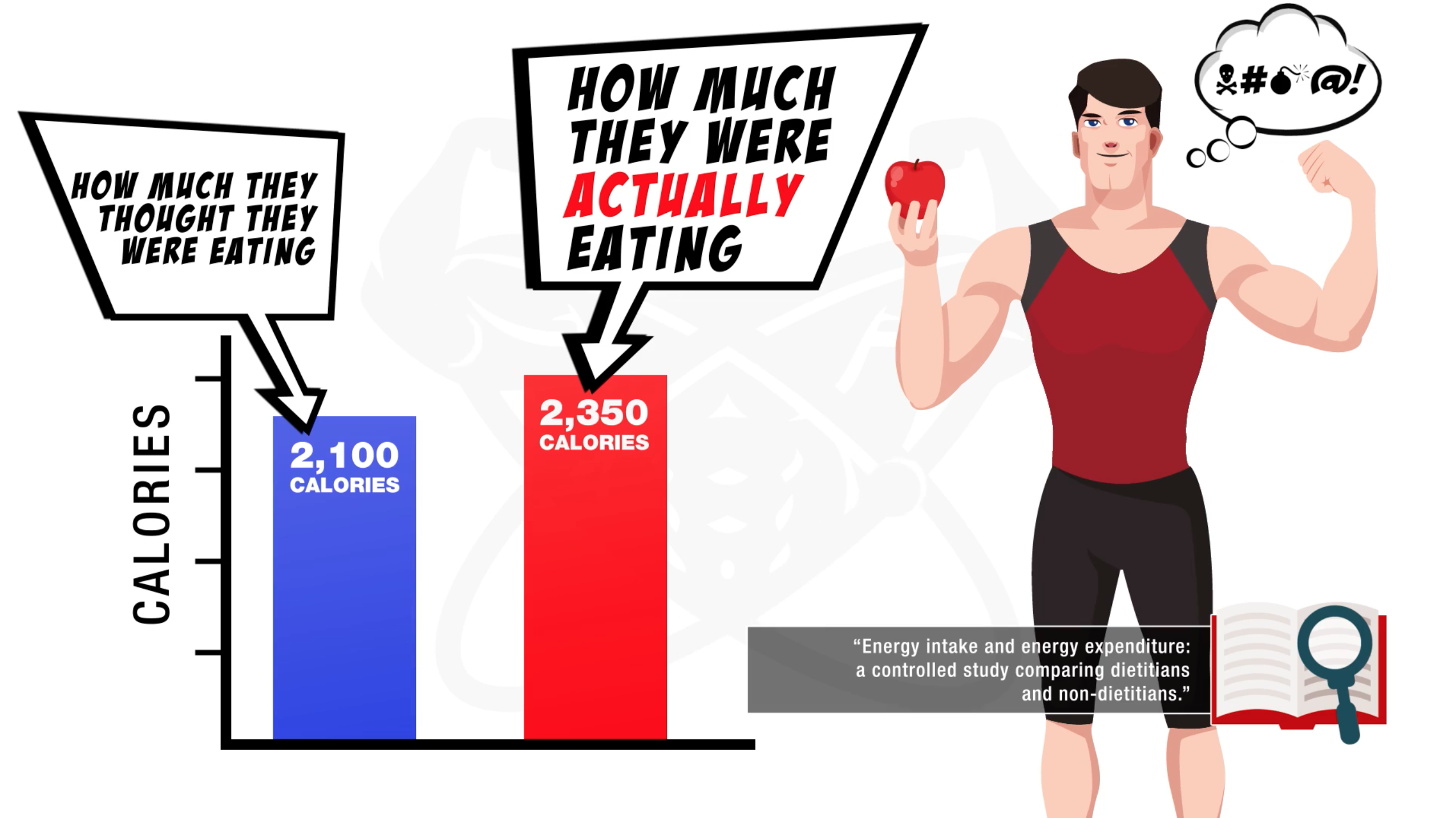
Why Do People Underestimate Calorie Intake?
Well, the truth is that most people are horrible at estimating the actual amount of calories that they eat.
How many calories would you guess is in this meal of whole grain avocado toast with some olive oil drizzled on top?
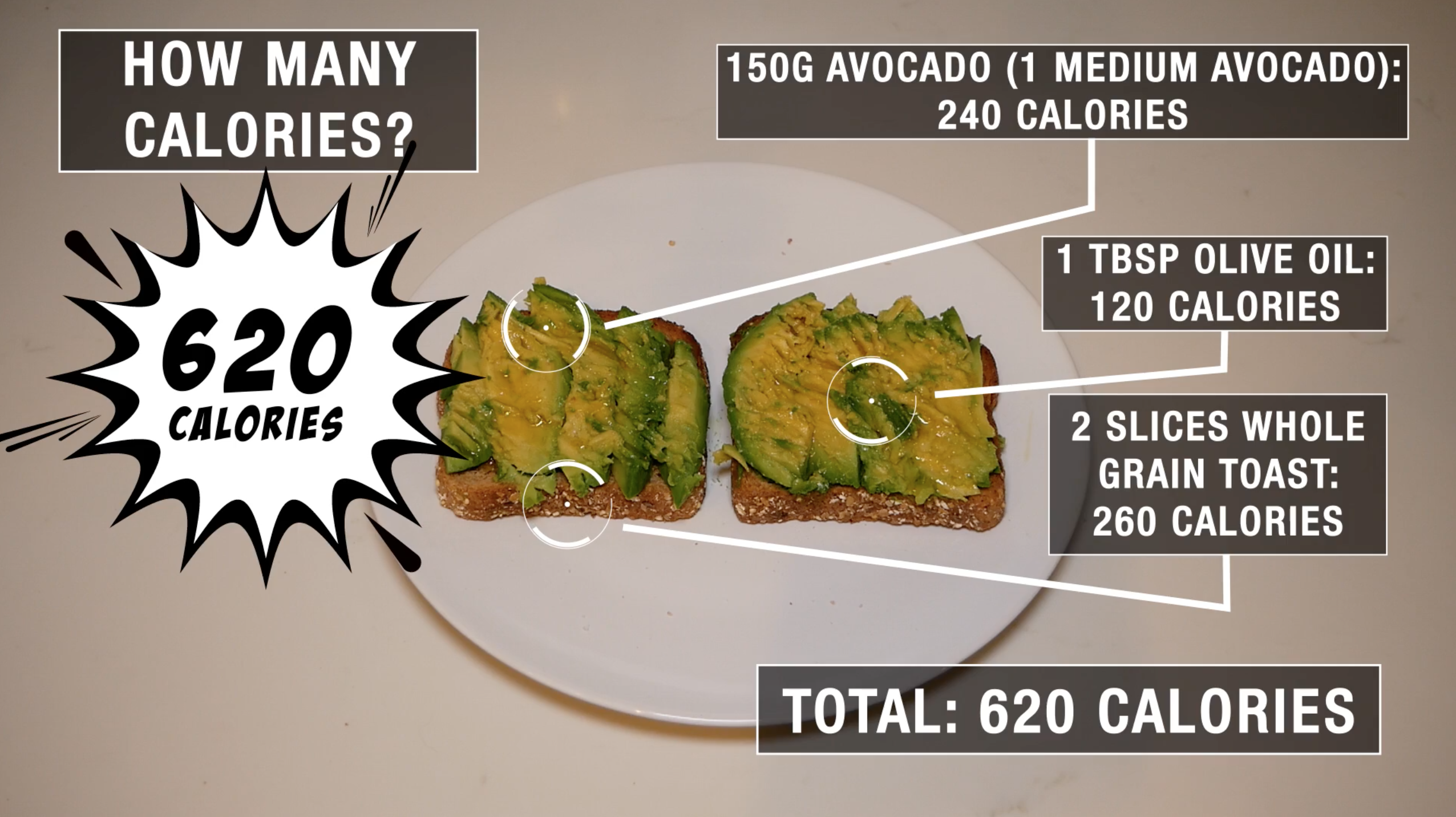
Chances are, you wouldn’t have guessed this could be a whopping 620 calories.
This difference in perceived versus actual calories very quickly becomes the factor that inhibits someone's fat loss.
To mitigate this, you need to start monitoring your food intake. Ideally, it's best to track your calories and macronutrient intake using a food scale.
Here's a link to a very affordable food scale I use myself.
You can then use an app like MyFitnessPal to track the calories from these foods.
Tracking your food intake is not as daunting as it sounds. I highly recommend you do this or at least try it out as it’s going to help you see how many calories you’re truly eating daily. Even doing this for one week will help your ability to accurately estimate calories.
Watch Out For Hidden Calories
Make sure that you don’t forget about hidden calories.
For example, let’s say you require 2,000 calories to lose weight. You’ve monitored your food intake for the day and you're are confident you hit that goal.
But after analyzing your food intake, you realize you missed a few foods:
- The extra olive oil you cooked your eggs with
- Ketchup you ate with your eggs
- The drizzle of salad dressing you used
- Maybe you also had a bite of your partner's chocolate bar
These small and seemingly insignificant foods can add up to 400 calories (or more). 400 calories on a daily basis are more than enough to prevent you from maintaining a consistent calorie deficit. This could be the reason you're not losing fat.
Of course, hidden calories can be extremely frustrating. If you're looking to rein in your calorie-intake (without feeling like you're depriving yourself), then our 3-on-1 coaching program could be the right fit for you. Here, you'll be tagged with a dietitian (along with a team of experts here at BWS) to make sure you eat right and well. Find out how our program can help you achieve your weight loss goals below:
Click the button below to find out more about the 3-on-1 coaching program:
↓
Mistake #2: Not Weighing Yourself Accurately
The next reason why you’re not losing weight is that you do not correctly weigh yourself.
What most people do is weigh themselves sporadically every week or so.
The problem with this is, well, let’s use me as an example.
The following graph below is my daily weigh-in history for the last four weeks as I’ve been cutting.
As shown below, my weight fluctuated a lot. This is normal. What's important is that the overall trend is downwards, with the weekly weight decreasing on average.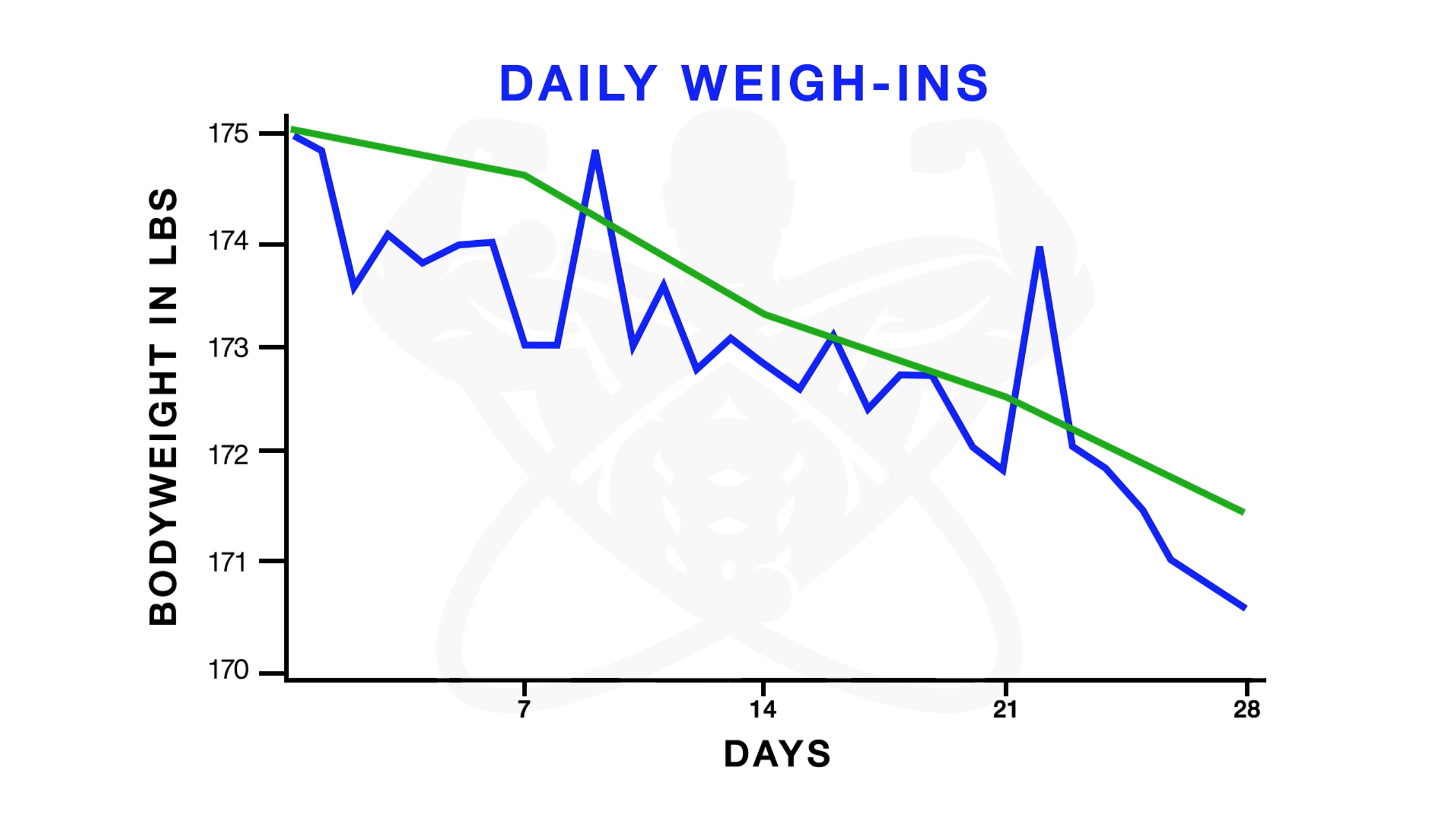
If I were to randomly weight myself once per week, I could end up with data shown in the graph below.
Random weight measurements may leave me confused. It might appear that I'm gaining weight, even though I'm in a calorie deficit. This frustration is often why people quit.
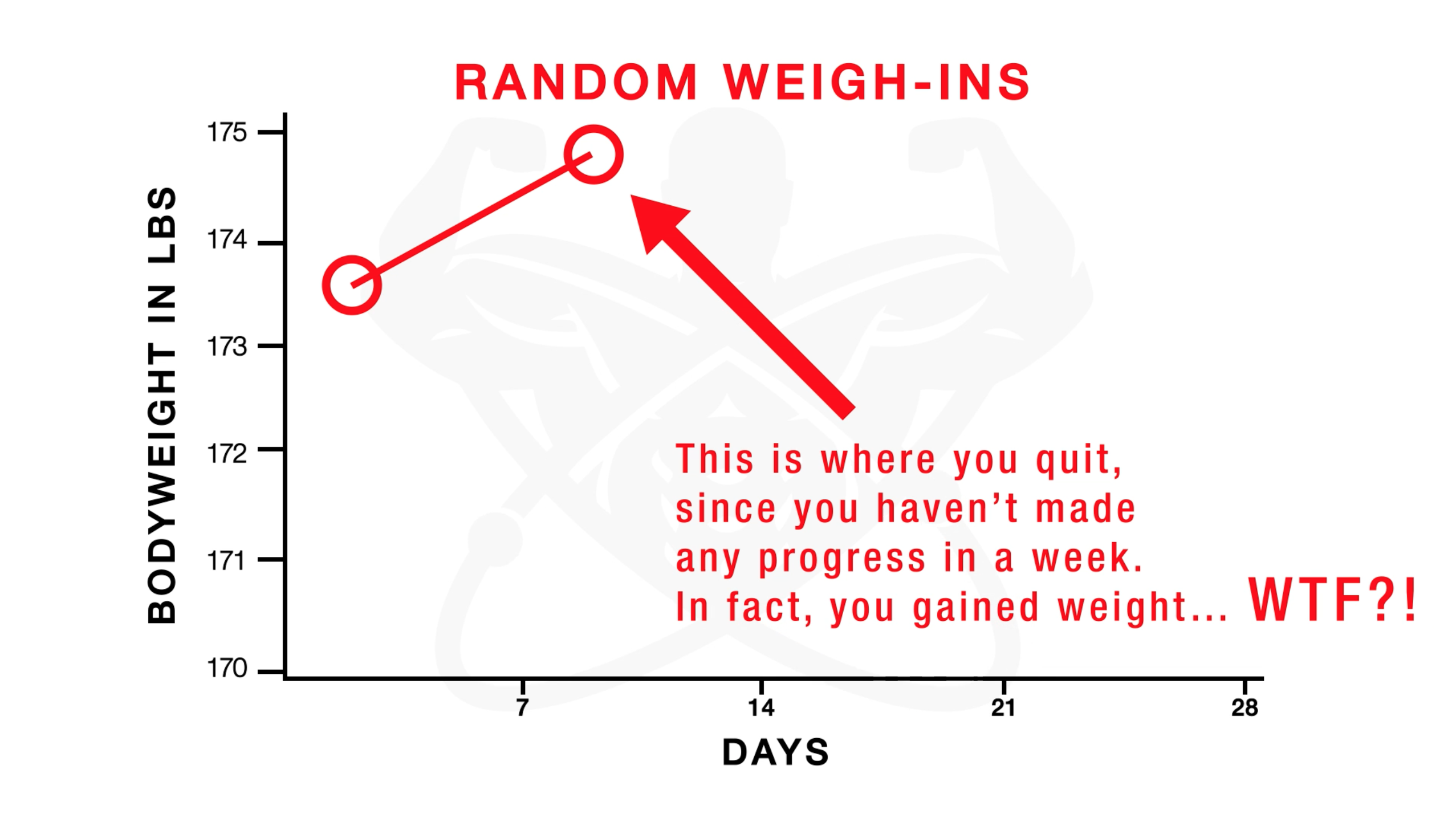
But this is just because you haven’t taken the time to track your data accurately.
With only one weigh-in per week, you become severely misled about the general direction of weight change.
What you need to do is weigh yourself every single morning right when you wake up, after you’ve used the washroom but before you eat or drink anything. Doing these three things will help to minimize daily weight fluctuations.
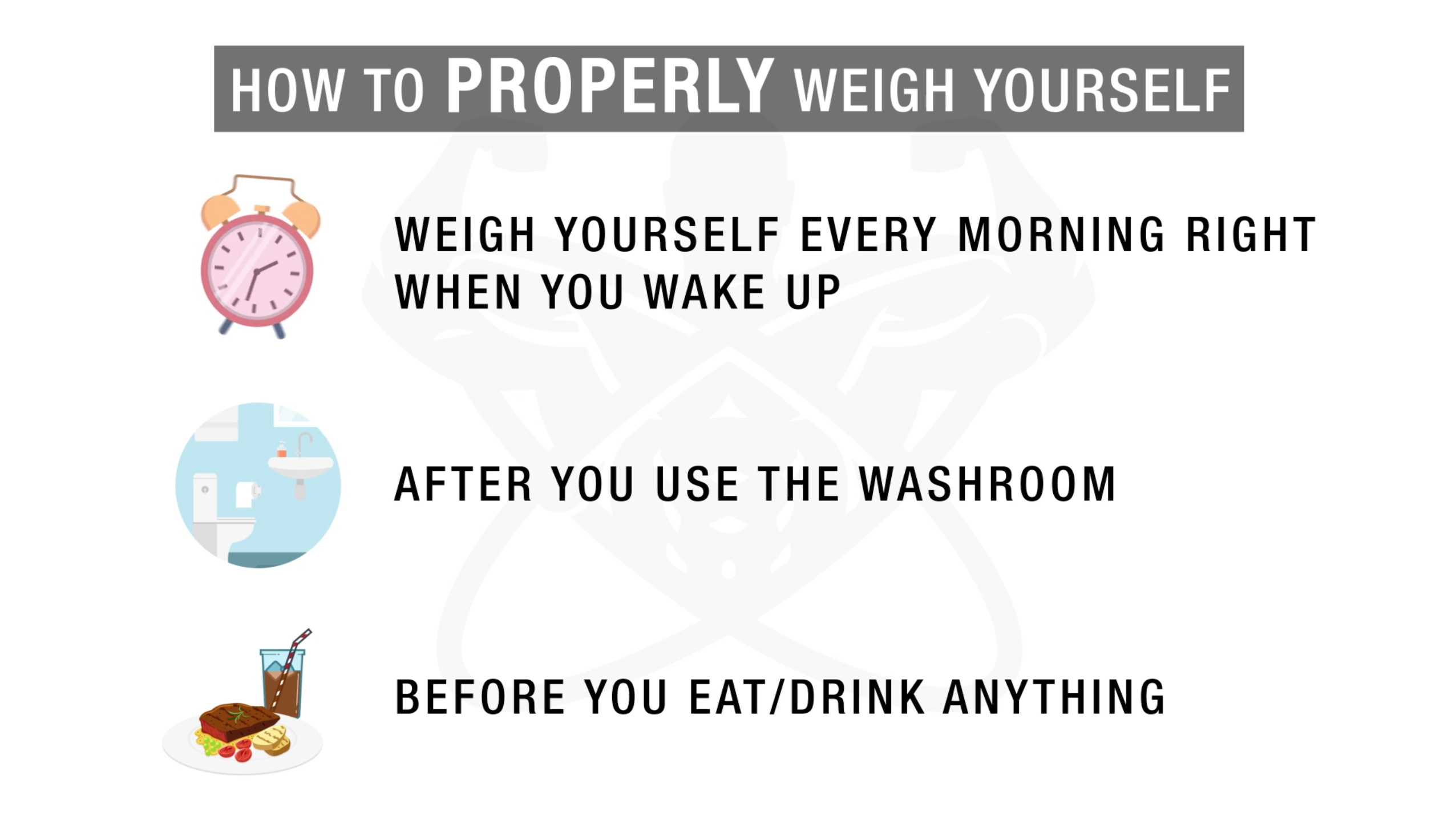
You’ll then want to write down this number every day and take a weekly average of it.
Then, every week, compare that average weight to the prior week’s average, as this will more accurately represent what’s happening with your weight.
If after 3 or 4 weeks or so you don’t see any change in your weekly average weight, then you’ll be more informed that something may need to be changed in your plan, such as a decrease in your calorie intake.
Here's a digital weight scale I recommend using.
Mistake #3: Overestimating & Eating Back Calories Burned
The next mistake you’re making is overestimating and eating back the calories you burn.
A lot of people find that after doing an intense workout, they are hungrier and feel as though they should eat more to compensate for the calories they burned.
Multiple papers have shown that after exercise (especially cardio), people end up eating a lot of calories.
It's normal to be hungry after working out. But, many people overeat post-workout to the point where they often exceed the calories they burned in their workout.
To make matters worse, research indicates that people tend to overestimate the calories they burned in a workout by up to 70%.
Research has also shown that devices or machines that track the calories you burned have been shown to overestimate the actual calories you burned by up to 24%.
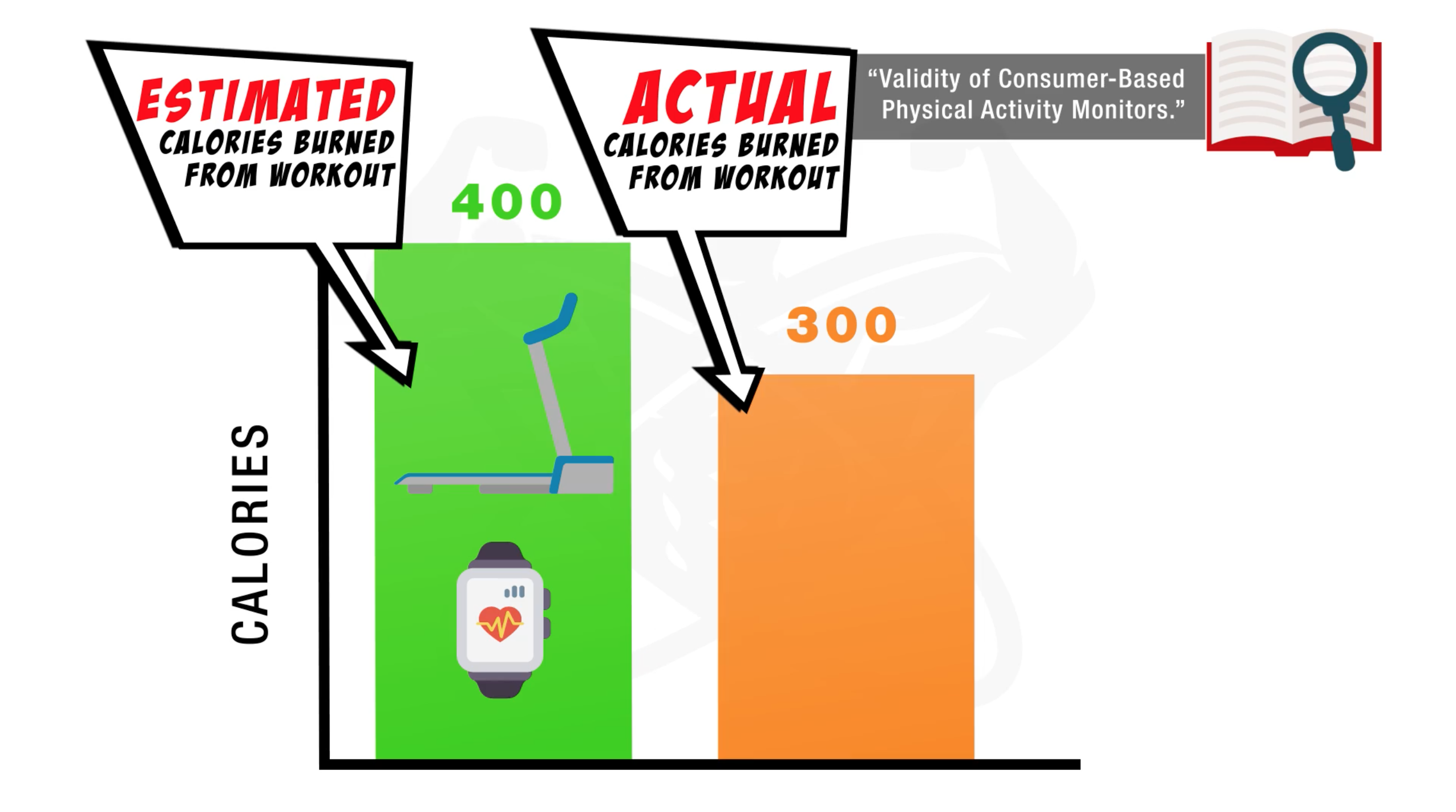
If you’re using either of those methods to track your calories burned, this could be why you're not losing fat.
To keep things simple, stick to a fixed daily calorie intake and weekly workout routine. Keep track of your weekly average weight.
If you’re not losing weight, then adjust your plan accordingly by either slightly decreasing your calories and/or increasing cardio frequency.
Mistake #4: Body Recomposition
The last mistake is not realizing that you’re going through a body recomposition.
When most people think of fat loss, they immediately think of numbers on the scale.
They assume that if their weight isn’t going down, then they’re not losing fat. But this isn’t always the case.
If you’re new to training, or you’re coming back from some time off, or you're getting more serious about your results, then you're more likely to experience body recomposition.
Body recomposition is when you build muscle and lose fat simultaneously. Losing fat and building muscle is, of course, a good thing.
But if you're losing fat and building muscle, you may not be losing weight, even though you're losing fat.
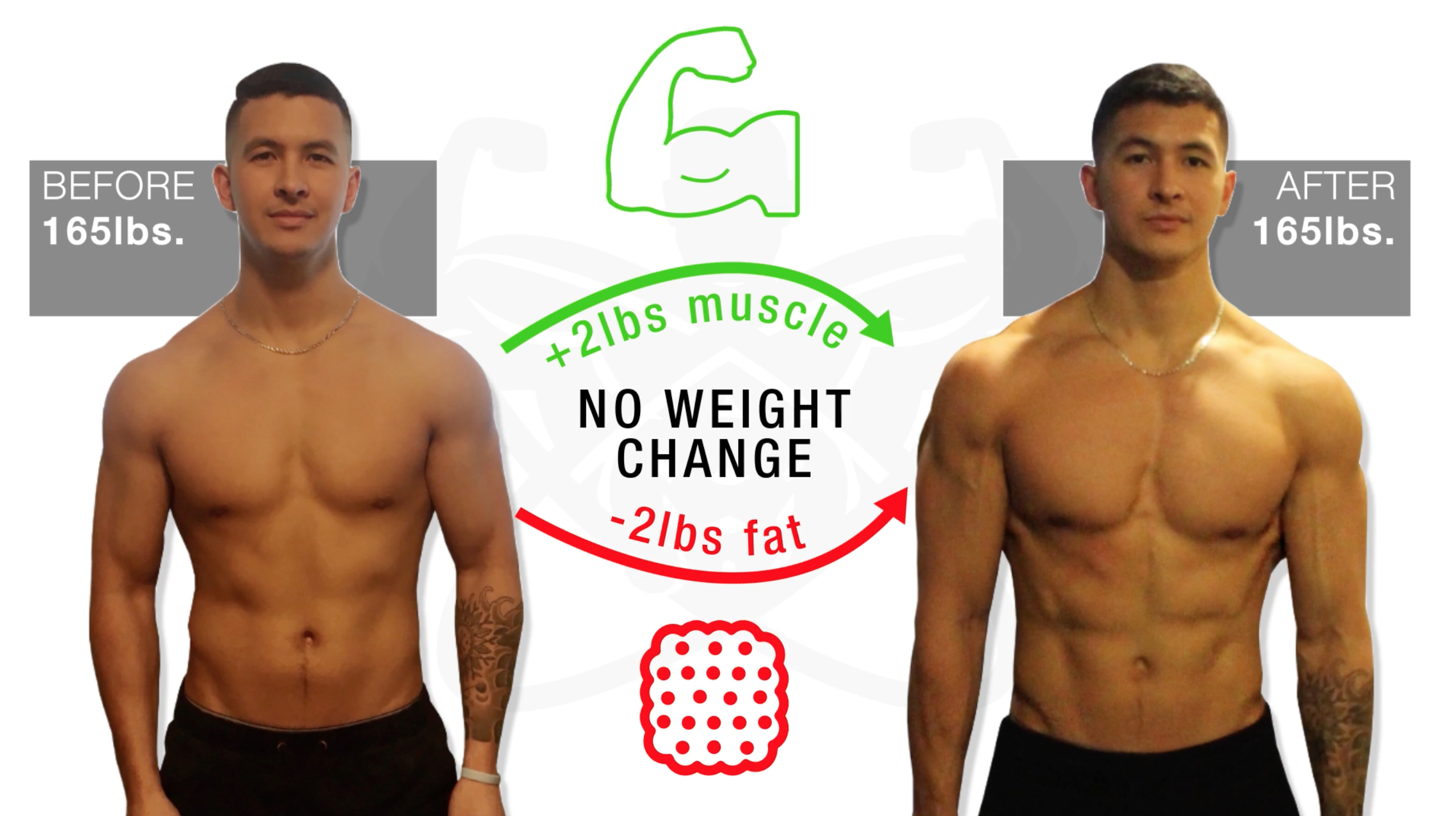
This is why it’s vital that you use to measure your progress in other ways rather than just relying on the scale as a measure of progress.
What Else Should You Track?
In addition to tracking your weight, it’s also a good idea to keep track of your strength in the gym. Be sure to also take weekly progress pictures and body measurements.
If in the past six weeks your weight has stayed the same BUT your strength has increased, your arm measurements have increased and your waist measurements have decreased, then these are all signs that you’re going through a body recomposition.
Someone who is just measuring their weight may be inclined to decrease their calorie intake even further, despite their body actually making progress.
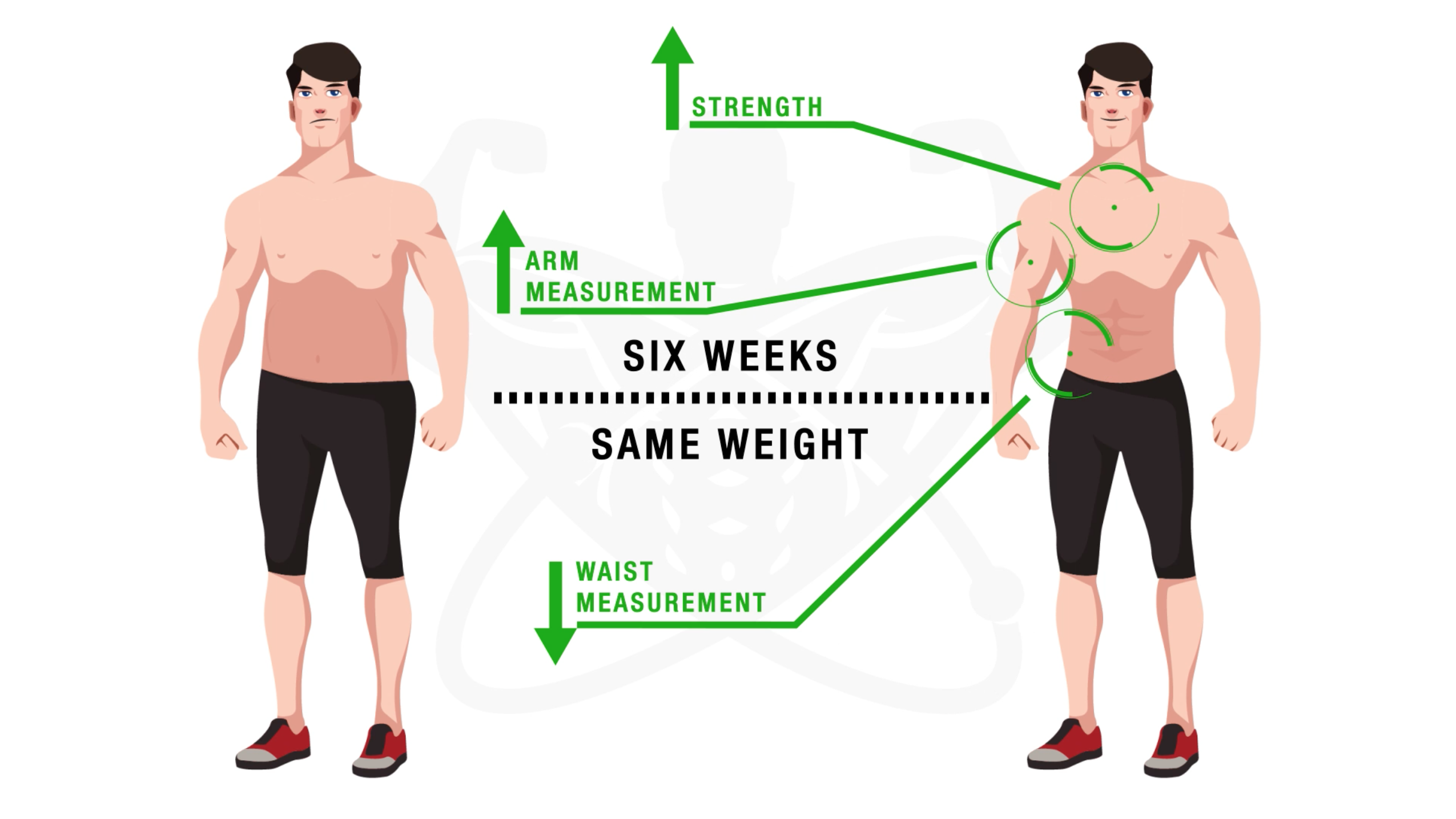
Guys, I can’t stress enough how important tracking your data is.
Tracking your strength in the gym, tracking your foods, tracking your weight, and so on are all a must. By tracking these variables, you can rest assured that you are actually making progress and doing everything right.
Within my Built With Science programs, you're provided with tracking software.
This software will help you track your workouts, your diet, and every other variable you need to track.
Within the program, you’re going to learn how to avoid making crucial mistakes like the ones I went through in this article before they happen. This is why so many of my members are seeing incredible results.
That's why I've created a quiz which will give you a specific program recommendation based on exactly what you're trying to achieve:
Click the button below to take my analysis quiz to discover the best program for you:
↓
I hope you enjoyed this article and found it useful! Don’t forget to give me a follow and connect with me on Instagram, Facebook, and Youtube as well, to stay up to date with my content. Cheers!




